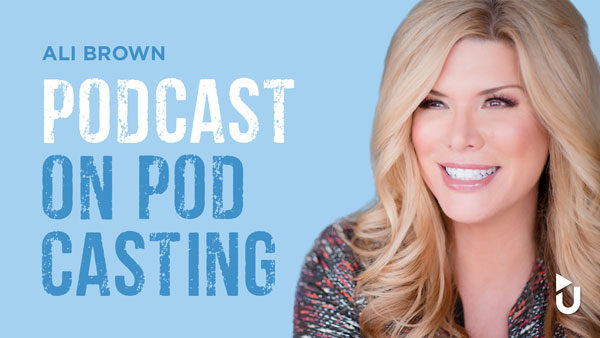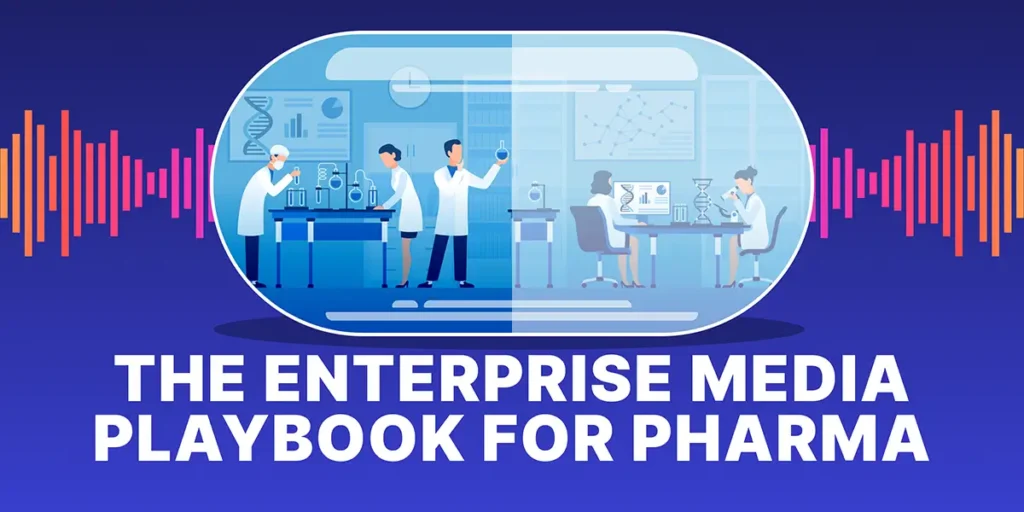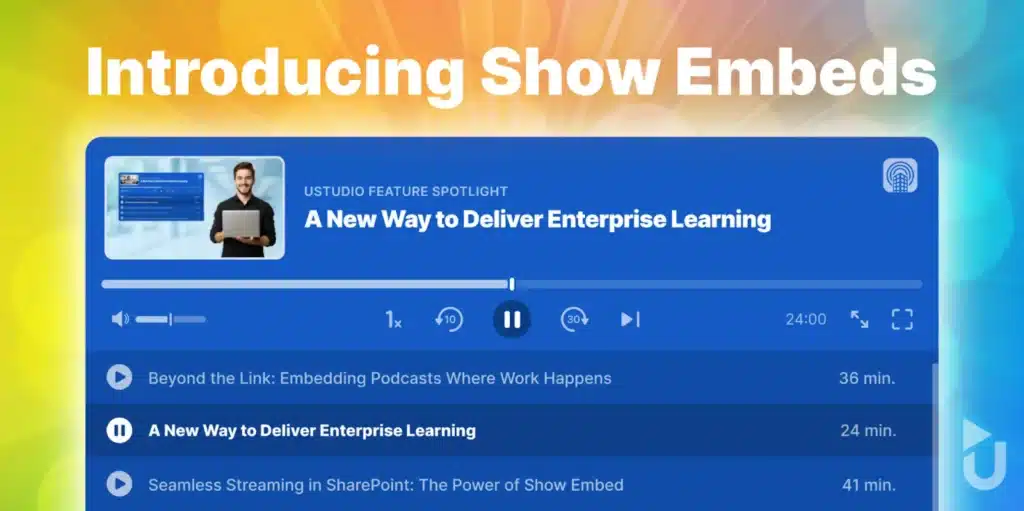Get the Most from Your Guests! Ali Brown’s Secrets to a Great Corporate Podcast Interview
uStudio Staff | Podcasting

On our latest podcast episode, we met with Forbes’ “Woman to Watch” and host of Glambition Radio, Ali Brown. As the host of one of the top podcasts for women entrepreneurs, Ali has interviewed hundreds of high profile guests. Here she lets us in on her tips for conducting a great corporate podcast interview.
BEFORE THE INTERVIEW
Do your homework.
Preparation is key. Create a plan for what your episode is going to include. Outline some basic questions and have them at the ready to steer the conversation. While it’s important to lead the interview to where you want it to go, you also need to be ready to adapt to what your guest says in the moment. For that you need a general outline plus great listening skills.
Have a short prep call.
This is a very simple tip that can make a huge difference for your show. The purpose of a prep call is to let your guest know what’s going on and to make them feel at ease. Many guests get nervous when speaking on a podcast show and chatting with them beforehand will establish a connection between the two of you. It will make them feel more familiar with the process and more comfortable talking to you. One of the best questions to ask them is, “How can I make this interview great for you?” This shows that you care about quality, and it will establish a line of trust between you. They have to trust that you’ll make them sound good.
Make sure the technical issues are resolved.
Get the best technical advice you can because the tech side can make or break your show. You don’t need an A-list set up, but you do want something that will sound good and accommodate your situation. When you are recording guests remotely, offer to help with their set up. For example, you can offer to send your guest any special gear they may need to record and make sure they are comfortable recording with it. It’s important that you send them an email with instructions on how to operate the equipment, the process of recording, and how to send the file because without this, you won’t have a podcast.
DURING THE INTERVIEW
Be a good listener.
The biggest compliment I get is being told, “you are such a good interviewer.” I ask them why, and they say, “you actually listen.” Have you ever listened to an interview where the guest gives an amazing answer, and the interviewer just goes: “okay thanks, question number 2.” It happens all the time, and it makes the interview sound terrible because it’s not a natural conversation. Listen to how your guest responds and take the conversation from there because that’s where the best show content comes from. This also makes your interviewee feel better because it doesn’t seem like you’re disregarding their words when you’re able to customize the questions to fit the flow of the conversation.
Be passionate.
It’s important to lead with your heart, not your head. What this means is that you have to love talking to amazing people. You have to be genuinely interested and excited about the message you’re trying to convey in your podcast and the guests you’re inviting on your show. You don’t want to start by thinking, “I have to hit these three points to be successful.” It’s better to think, “How can I make this enjoyable for myself?” We usually don’t ask ourselves that, and it’s great at getting you passionate about your show.
Cater to your audience.
This is usually what is on every podcaster’s mind. How do I please my listeners? You know your audience better than anyone, including your guest. It’s your job to ensure the audience gets what they want and need from your show. Guide, but don’t force, your discussion to give your audience great bits of content that they’ll enjoy. After some time, you may think you have a really captive audience, but that doesn’t mean you get to slack off. If you’re not continuously providing good content and making it entertaining, you might lose them. It doesn’t hurt to make your show a little more engaging and entertaining to keep your listeners active.
AFTER THE INTERVIEW
Be grateful.
First things first, you have to thank your guest. They took time out of their day to be interviewed and help you create your episode, so you have to show gratitude. Let them know when it’s published and ask them to share it with their connections. I hosted a cocktail party in New York for a lot of the women I interviewed, and many of them came up to me and said, “I feel like I’ve met you already because of our conversation.” It’s incredibly rewarding to hear because that emphasizes that even though you only had a 20 minute interview, you’ve done a great job at making the conversation genuine and personal.
Ask for feedback.
It’s also a great idea to ask your guests for feedback on the episode or the process because you don’t know what your show is like from the guest’s point-of-view. They could give you some great pointers that improve your podcasts. All of this establishes a stronger connection with your guest, and they may even agree to come back!
Involve the audience.
This is my best advice. Involve the audience. Reach out to them on a regular basis. Let them ask questions as themselves or anonymously. Answer at least one audience question on each podcast. I’ve seen that done very well within some organizations. Actually, anonymous stuff is great because then you can honestly answer some of the questions that you’re getting about where the company is going or why certain policies are certain ways. Keeping the audience engaged with questions or responding to them creates valuable rapport that lets them know that you’re aware of them. It creates a sense of community will not only help you make your show better, but it will help it grow faster. It takes time to build up an audience, but once they’re listening, you pretty much have them.
To hear more episodes of Podcast on Podcasting, download our app on iOS or Android today, or visit our podcast episode library.


